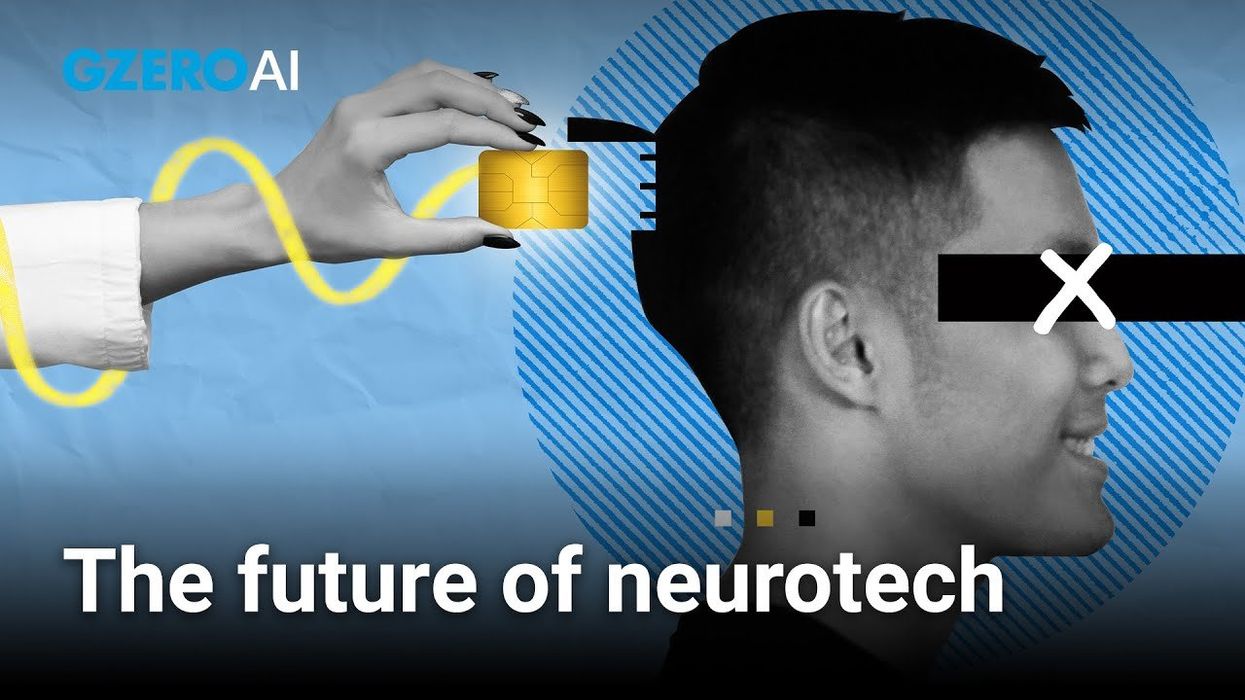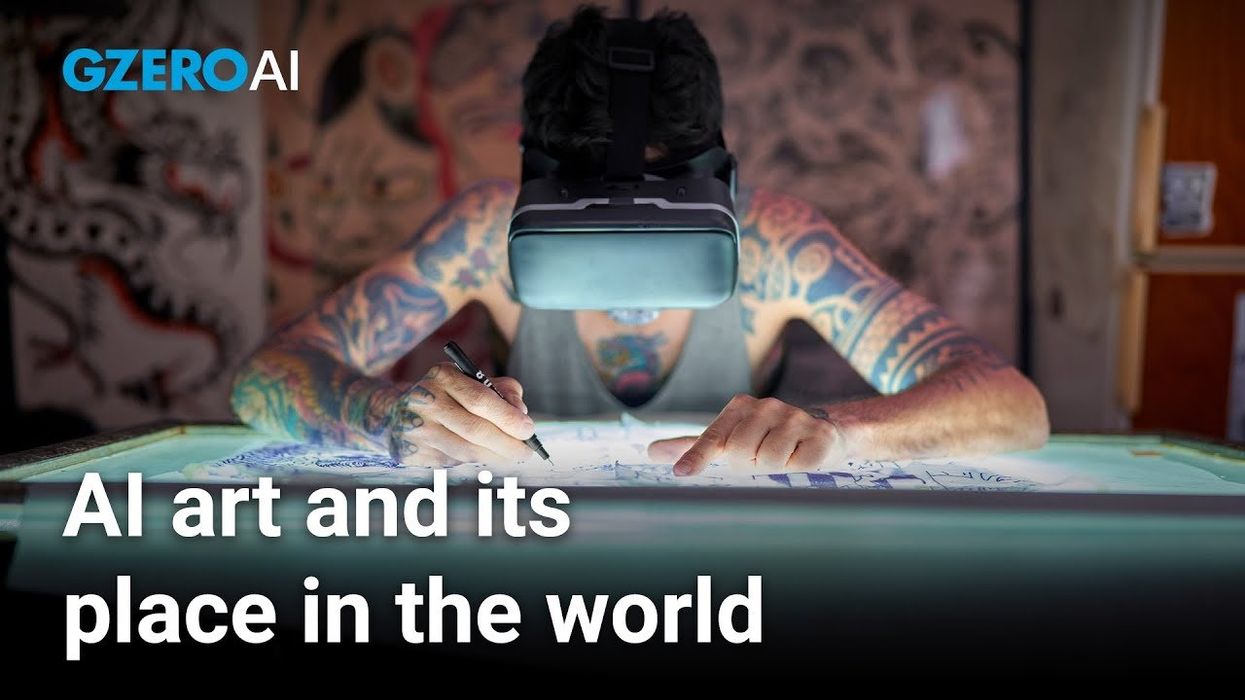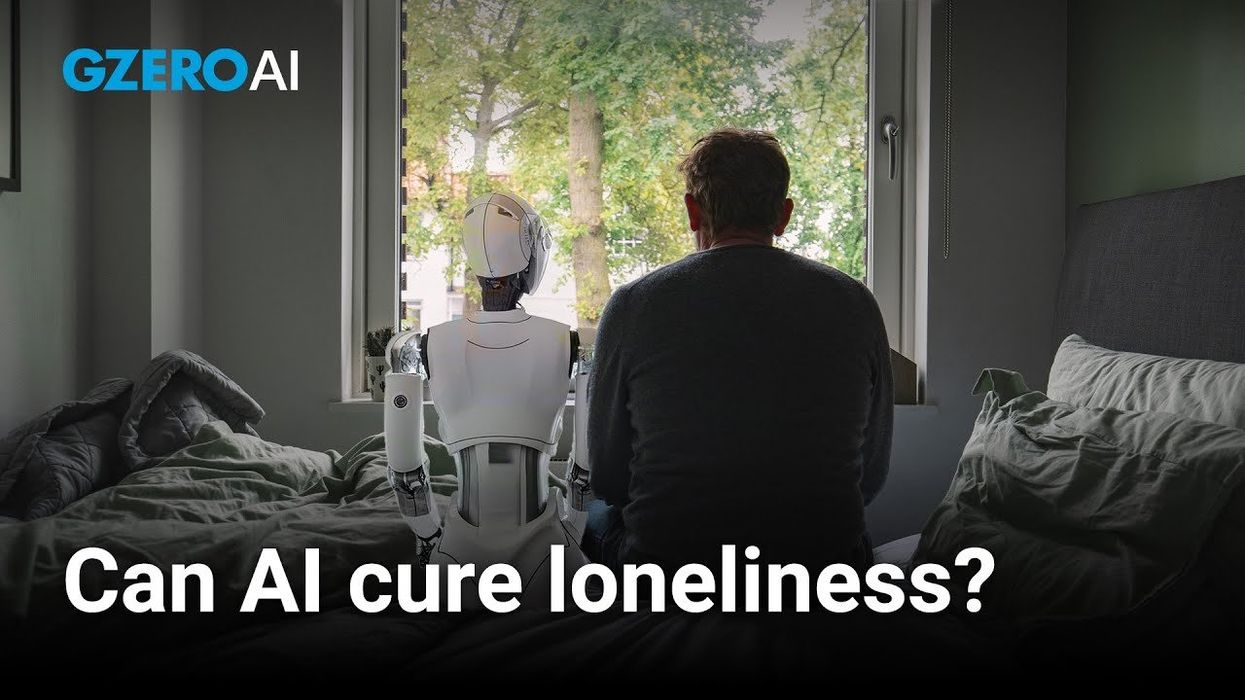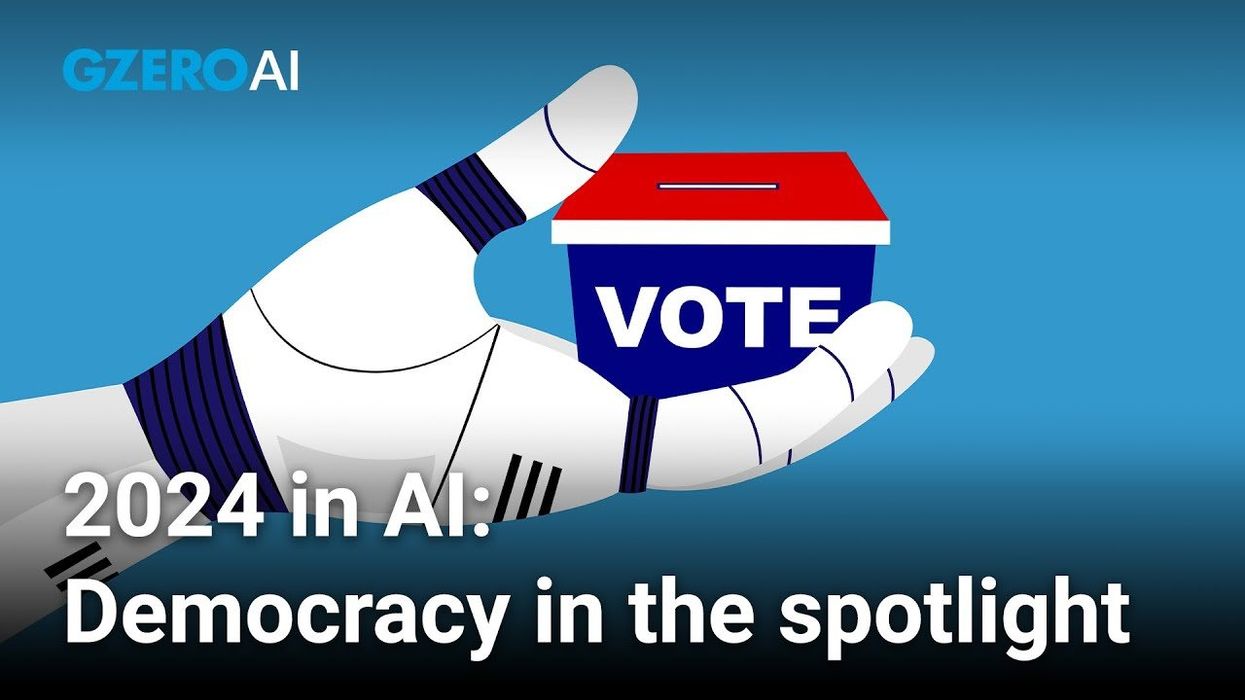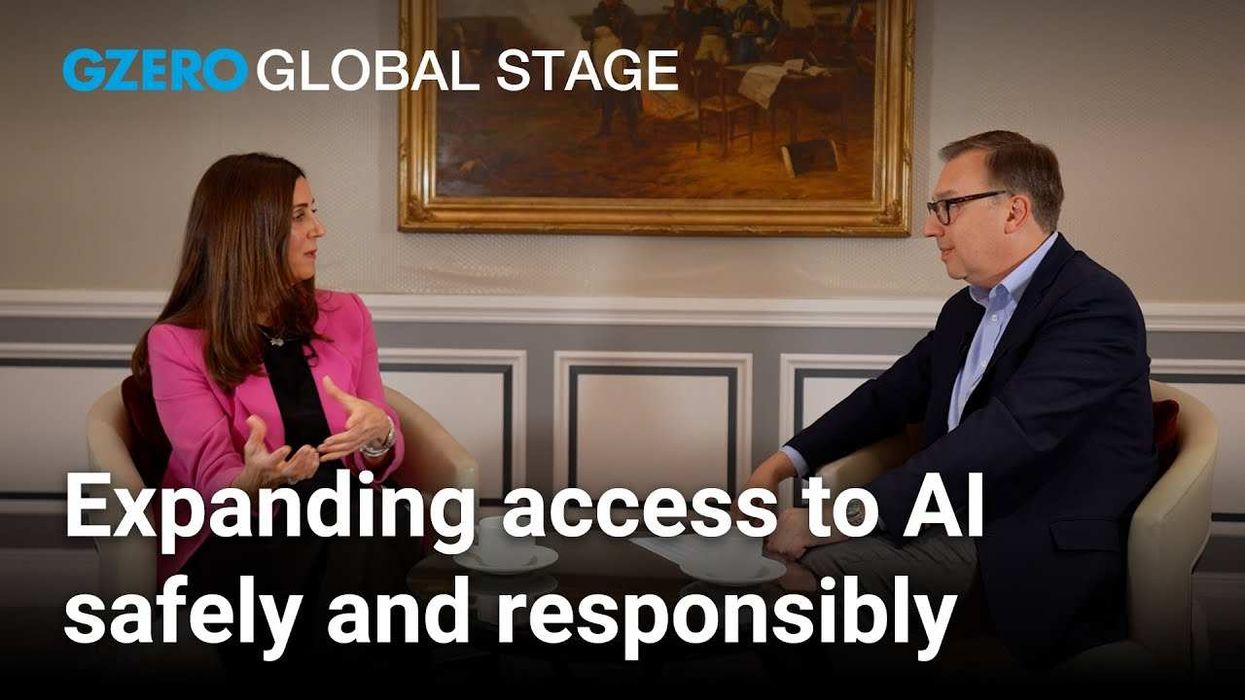VIDEOSGZERO World with Ian BremmerQuick TakePUPPET REGIMEIan ExplainsGZERO ReportsAsk IanGlobal Stage
Site Navigation
Search
Human content,
AI powered search.
Latest Stories
Start your day right!
Get latest updates and insights delivered to your inbox.
GZERO AI Video
GZERO AI is our weekly video series intended to help you keep up and make sense of the latest news on the AI revolution.
Presented by
In this episode of GZERO AI, Taylor Owen, host of the Machines Like Us podcast, explores the immense potential of neurotechnology. On the heels of Elon Musk's brain implant company Neuralink making the headlines again, he examines how this technology, now turbocharged by artificial intelligence, could transform our lives. However, it is not without potential pitfalls, which call for regulatory discussions surrounding its use.
So earlier this year, Elon Musk's other company, Neuralink, successfully installed a brain implant in a 29-year-old quadriplegic man's brain named Noland Arbaugh. Last week, this story got a ton of attention when Neuralink announced that part of this implant had malfunctioned. But I think this news cycle and all the hyperbole around it misses the bigger picture.
Let me explain. So first, this Neuralink technology is really remarkable. It allowed Arbaugh to play chess with his mind, which he showed in his demo. But the potential beyond this really is fast. It's pretty early days for this technology, but there are signs that it might help us eliminate painful memories, repair lost bodily functions, and allow us to maybe even communicate with each other telepathically.
Second, this brain implant neurotechnology is part of a wider range of neuro tech. A second category isn't implanted in your body, but instead it sits on your body or near it, and picks up electric signals of your brain. These devices, which are being developed, by Meta and Apple, among many others, are more akin to health tracking devices, except they open up access to our thoughts.
Third point here is that this tech is an example of an adjacent technology to AI being turbocharged by recent advances in AI. One of the challenges of neurotech has been how to make sense of all of this data coming from our brains. And here is where AI becomes really powerful. We now increasingly have the power to give these data from our minds, meaning. The result is that the technology and corporations developing them have access to the most private data we have, data about what we think. Which of course brings up the bigger point here, which is we're on the cusp of getting access to our brain data and the potential and of abuse for this really is vast. And it's already happening.
Governments are already using neurotech to try and read their citizens minds, and corporations are working on ways to advertise to potential customers in their dreams. And finally, I think this shows very clearly that we need to be thinking about regulation and fast. Nita Farahany, who has recently written a book about the future of neurotechnology, called, “The Battle for Your Brain: Defending the right to Think Freely in the Age of Neurotechnology,” thinks we have a year to figure out the governance of this tech. A year, it's moving that fast. So many in the AI debate are debating and discussing the existential risks of AI, we might want to pay some attention to the technologies that are adjacent to AI and being empowered by it, as they likely present a far more immediate challenge.
I'm Taylor Owen, and thanks for watching.
Keep reading...Show less
More from GZERO AI Video
Europe’s AI deepfake raid
March 04, 2025
AI's existential risks: Why Yoshua Bengio is warning the world
October 01, 2024
How is AI shaping culture in the art world?
July 02, 2024
How AI models are grabbing the world's data
June 18, 2024
Can AI help doctors act more human?
June 04, 2024
OpenAI is risk-testing Voice Engine, but the risks are clear
April 03, 2024
Should we regulate generative AI with open or closed models?
March 20, 2024
AI and Canada's proposed Online Harms Act
March 05, 2024
Gemini AI controversy highlights AI racial bias challenge
February 29, 2024
When AI makes mistakes, who can be held responsible?
February 20, 2024
AI & human rights: Bridging a huge divide
February 16, 2024
Taylor Swift AI images & the rise of the deepfakes problem
February 06, 2024
Will Taylor Swift's AI deepfake problems prompt Congress to act?
February 01, 2024
ChatGPT on campus: How are universities handling generative AI?
January 23, 2024
Davos 2024: AI is having a moment at the World Economic Forum
January 16, 2024
AI in 2024: Will democracy be disrupted?
December 20, 2023
New AI toys spark privacy concerns for kids
December 12, 2023
GZERO Series
GZERO Daily: our free newsletter about global politics
Keep up with what’s going on around the world - and why it matters.
